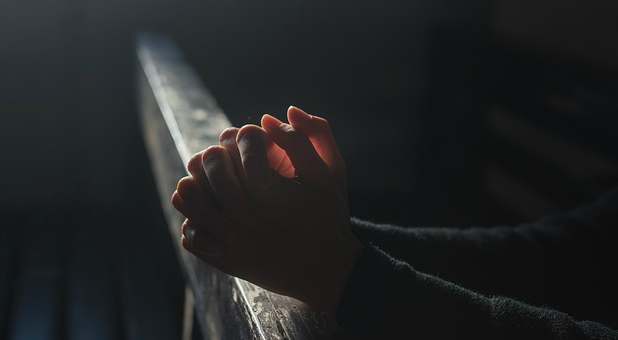
This past weekend, tropical storm Harvey hit the Gulf Coast of the United States, dumping record levels of rain on Louisiana and Texas, including the city of Houston. As a result of the widespread flooding, at least 30 people have died and tens of thousands of people have had to flee their homes.
On the other side of the world, summer monsoon rains have caused devastating floods in Bangladesh, Nepal and India, killing more than 1,200 people and displacing millions from their homes. At the same moment Houston is under water, so is Mumbai.
Whenever I hear about natural disasters around the world and see photos of the devastation, I am often at a loss. What can I do from Nashville or Manila (or in this case Honolulu) where I am safe from the storms that are tearing apart cities, homes, and families?
At Every Nation, we often encourage people to pray, give and go.
If you live in or near one of these cities, in the coming weeks and months, I would recommend volunteering with a Christian relief organization. My sons and I volunteered with Samaritan's Purse when they helped rebuild homes that had been destroyed during the Nashville flood in 2010. Sometimes, Every Nation churches mobilize our own efforts, as when Typhoon Haiyan struck Tacloban, Philippines in 2013, and other times, we partner with organizations like Samaritan's Purse.
If you can't go, I would also encourage you to give, as most people do not have funds or insurance to rebuild their homes and are often reliant on relief organizations or the government to rebuild their homes and livelihoods after the water recedes.
But in this blog, I want to focus on prayer.
How should we pray in situations like these? What should we pray?
Here are three ways we should pray:
1. Pray with sorrow. The loss of life and the devastation to cities and homes is tragic, and it should move us to mourning. Even if we don't have intimate links with the cities and peoples affected, we should be moved with sorrow because God is moved with sorrow. While it might be easier to move on with our very busy lives without skipping a beat, it is healthy for our souls to pause, think about what has happened and mourn. Paul calls us to "weep with those who weep" (Rom. 12:15). This is where our prayers should start.
2. Pray with specificity. What should we pray for when there are literally thousands, even millions, of needs and urgent requests? How can we avoid vague prayers that are so general they cover everything—yet ask God for nothing? I tend to focus my prayers on the people or at least churches I know in the region. For example, in Houston, I am praying for Chris Pate and City Life Church; and in South Asia, I am praying for Kevin Menezes and Every Nation Mumbai, as well as our missionaries (who cannot be named) in Bangladesh. I am praying that God would protect their families and homes, as well as give them wisdom as they minister to people who have lost everything and mobilize their churches to serve their communities in the days and months.
3. Pray with hope. When I look at the Bible, I am reminded that God always has redemptive purposes, even after a flood. The devastation grieves Him even more than it grieves us, but He is in the business of bringing new life in the wake of death and hope in the midst of hopelessness. There are many Scriptures that remind us of this, but my favorite is Psalm 126,
When the Lord restored the fortunes of Zion, we were like those who dream. ... Restore our fortunes, O Lord, like streams in the Negeb! Those who sow in tears shall reap with shouts of joy! he who goes out weeping, bearing the seed for sowing, shall come home with shouts of joy ....
So let's pray.
Pray with sorrow. Pray with specificity. And pray with hope. May your prayers also lead you to give and perhaps go. ![]()
Steve Murrell serves as the president of Every Nation Churches and Ministries, a ministry that does church planting and campus ministry in over 70 nations.
This article originally appeared at stevemurrell.com.
Get Spirit-filled content delivered right to your inbox! Click here to subscribe to our newsletter.
Dr. Mark Rutland's
National Institute of Christian Leadership (NICL)
The NICL is one of the top leadership training programs in the U.S. taught by Dr. Mark Rutland. If you're the type of leader that likes to have total control over every aspect of your ministry and your future success, the NICL is right for you!
FREE NICL MINI-COURSE - Enroll for 3-hours of training from Dr. Rutland's full leadership course. Experience the NICL and decide if this training is right for you and your team.
Do you feel stuck? Do you feel like you’re not growing? Do you need help from an expert in leadership? There is no other leadership training like the NICL. Gain the leadership skills and confidence you need to lead your church, business or ministry. Get ready to accomplish all of your God-given dreams. CLICK HERE for NICL training dates and details.The NICL Online is an option for any leader with time or schedule constraints. It's also for leaders who want to expedite their training to receive advanced standing for Master Level credit hours. Work through Dr. Rutland's full training from the comfort of your home or ministry at your pace. Learn more about NICL Online. Learn more about NICL Online.


